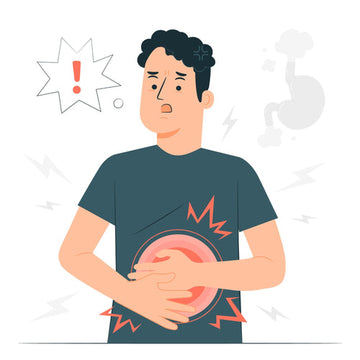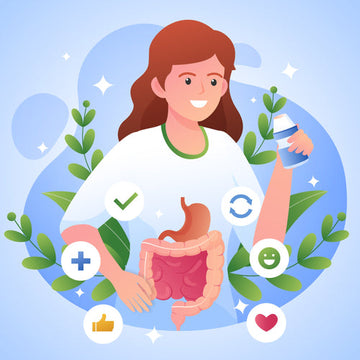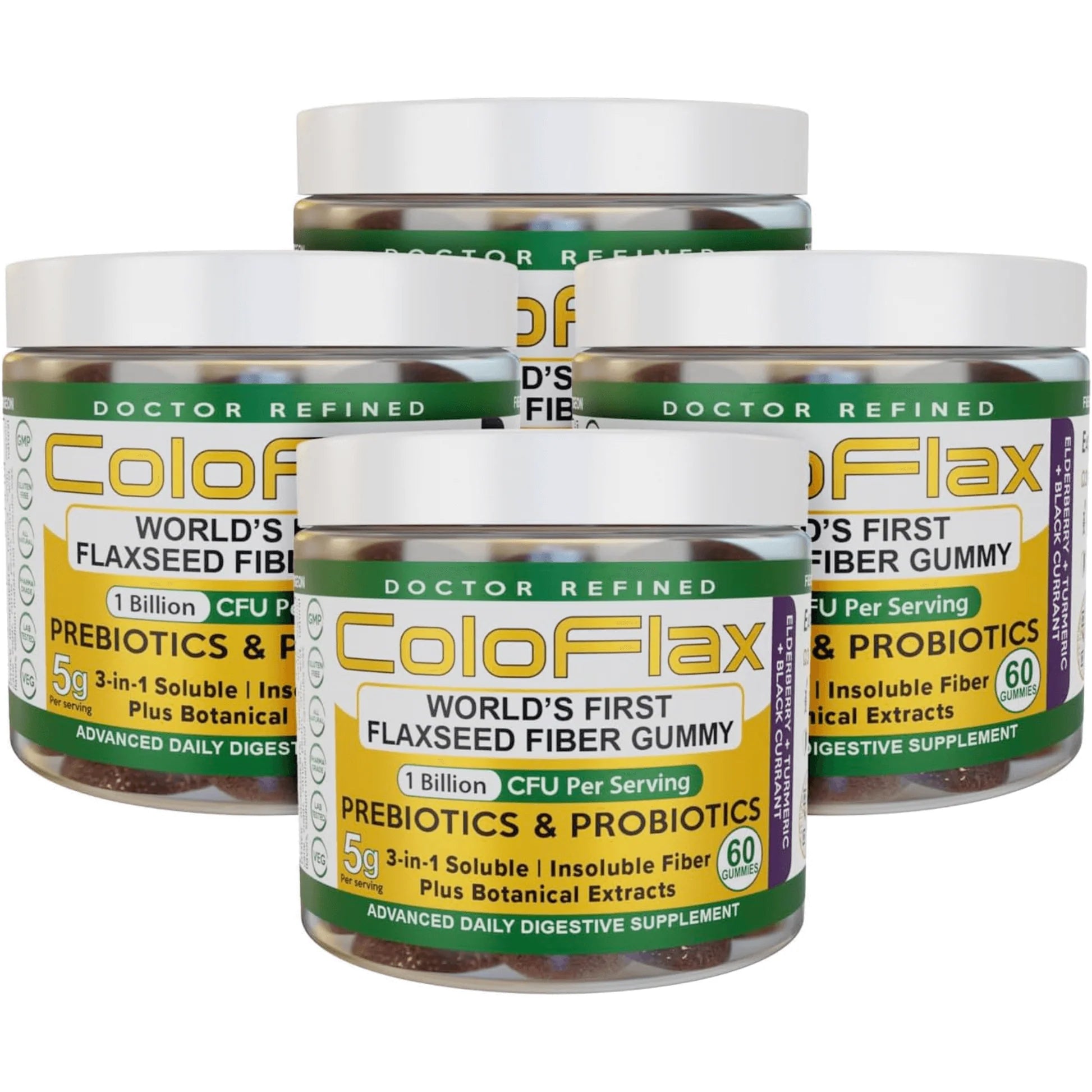There are a huge number of diets out there and they all meet different needs.
If you’re looking to lose weight, you can try a low-carb diet or focus on maintaining a calorie deficit. If you’re building muscle, bulk up your protein intake. If longevity is your goal, the Mediterranean diet could be best.
But what if you just want better digestive health? What foods should you be eating if your goal is to keep your gut microbiome healthy and promote regularity?
Let’s find out!

What are the Best Diets for Digestion?
We spoke of the Mediterranean diet above. It’s a diet that has been linked to a host of health benefits and one that could prolong your life.(1)
Eaten throughout the Mediterranean, this diet combines lots of fresh vegetables and fruit with minimal processed meat and cheese, several portions of fish a week, and plenty of olive oil and herbs. Not only is it good for you, but it’s delicious. After all, it encompasses the diets of Italy and Greece—two of the best food regions in the world.
The Mediterranean diet can work wonders for your digestive health. The lack of saturated fats and processed meats is kind to your body and boosted by the addition of many fruits and vegetables.
Whole food diets and raw food diets are also great for digestive health, as they combine plenty of wholesome and fiber-rich foods with natural probiotics.
But if you want a good diet for digestive health, the best solution is to combine the right ingredients, avoid harmful foods, and listen to your body.
Let’s take a closer look at what a good digestive diet should look like.

What Does a Good Digestion Diet Look Like?
Before we look at the foods to eat and the ones to avoid, remember that there is no quick fix. There are a lot of superfoods out there that are great for your digestive health and you should consider adding them to your diet, but you can’t eat only one or two foods. It’s all about balance, as well as finding healthy foods you actually enjoy eating.
Here are a few things to keep in mind:
High Fiber (Both Soluble and Insoluble)

Fiber is an essential part of any diet built around digestive health, and yet the vast majority of Americans don’t get enough. The American Heart Association recommends consuming between 25 and 30g of fiber every day. Not only does this promote optimal digestive health, but it also provides a number of cardiovascular benefits and has been linked with reduced cholesterol and lower mortality.(2)
There are two types of fiber: soluble and insoluble. The former dissolves in water and creates a gel-like substance, slowing its passage through the gut. Insoluble fiber adds to that bulk and helps to draw more water into the gut.
Both are needed, and they come from a variety of different foods, including fruits, vegetables, seeds, beans, and legumes.
If you’re struggling to get your fill of fiber, you can also use a supplement like ColoFlax, which contains 5g per serving, along with prebiotics, probiotics, antioxidants, and essential fatty acids.
Low Saturated Fat

Fatty foods can slow the digestive process, and a high-fat diet is more likely to cause constipation.
Fat is not the devil though, so you shouldn’t abstain entirely. The trick is to eat foods that are rich in monounsaturated and polyunsaturated fats, as opposed to saturated fat. The latter has been linked to higher rates of cardiovascular disease, as well as other chronic health complaints.(3)
Saturated fat is typically found in foods of animal origin, including red meat, cream, whole milk, cheese, and butter. Coconut milk is also high in saturated fat. As for “healthy fats”, you’ll find them in everything from fatty fish (trout, salmon, mackerel) to olive oil, flaxseeds, hemp seeds, and chia seeds.
Don’t be scared of fat. If you’re eating the right kind, it can be very good for you. Even saturated fat is fine in moderation.
Fermented and Natural Foods

The fermentation process encourages the growth of healthy bacteria, and these bacteria have been linked to many digestive benefits. So, a digestion-focused diet is one that contains the occasional fermented food, whether as a snack or a side dish. Some of the best fermented products include:
- Natural yogurt
- Sauerkraut
- Kombucha
- Miso
- Kimchi
- Kefir
- Tempeh
- Pickles
Always look for living bacteria. For instance, many commercially prepared yogurt products are heavily processed and this kills the bacteria. The same is true for sauerkraut. The end product still has that distinctive fermented taste, but it lacks healthy bacteria.
Be careful when consuming foods like kimchi and sauerkraut if you have GERD or are susceptible to acid reflux, as they are very acidic.
Minimal Fast Food and Processed Food

Eat as many natural and minimally processed foods as possible. Processing strips nutrients and enzymes from the food. It helps to extend the shelf life, but it means that typically healthy foods are little more than flavored husks.
It won’t harm you to enjoy the occasional pizza or burger, and there’s nothing wrong with grabbing some fast food after a long day or when you can’t be bothered to cook. But it becomes a problem if you’re eating them every day and they account for the bulk of your calorie consumption.
It’s all about moderation.
If you’re a fast food junkie, don’t try to go cold turkey. It will inevitably lead to a relapse and you’ll find yourself face-first in a Big Mac before you know it. Instead, reduce your intake and choose healthy options.
Swap the meat-feast pizza for a thin-base Margherita. Opt for a taco instead of a burger and give the fries and cheese sticks a miss. Try Mexican over American, skip dessert, and order a diet soda instead of regular.
For more information on eating healthily at your favorite chain, check out this guide to the best high-fiber options at fast food chains.
Eat Lean Protein

Protein is an essential part of a healthy and balanced diet. It serves a few different benefits when it comes to your digestive health.
Firstly, protein fills you up, making you less likely to snack. For many people, snacking is the cause of most dietary issues. They feast on fast food, chips, chocolate, and sugary sodas, and it wreaks havoc with their digestive system and their health in general.
Protein spends more time in the stomach than carbohydrates but not as long as fat. It slows down digestion, but not by much, thus filling you up without having a negative impact on your bowel habits.
If you’re reading that and wondering why you always seem to have difficult bowel movements after a high-protein meal, that brings us to the second benefit.
Many protein sources are high in saturated fat, including dairy and lean meat. If you’re getting all of your protein from these sources, you’ll be consuming too much saturated fat and leaving little room for high-fiber vegetables.
By sticking with lean proteins, you’ll keep the fat to a minimum and will have plenty of room—and appetite—for veggies and beans.
A Regular Eating Schedule

Adopting a consistent and regular eating schedule ensures that your stomach is not overworked.
For instance, if you eat sporadically throughout the day and constantly have your head in the fridge, your stomach will be forced to work overtime compared to if you eat big meals every few hours.
It also means you can have a bowel movement at the same time every day (or every couple of days, if that’s normal for you). If you’re one of the millions of Americans who doesn’t feel comfortable using the toilet at school or work, a schedule will prevent you from holding it in.
Drink Lots of Water

Whether you’re following the keto diet, the Mediterranean diet, or something of your own creation, it’s important to drink plenty of water.
Water is needed for many bodily processes and keeps you functioning optimally. It’s especially important for your digestive health, as it loosens your stools and smooths their transition through the intestines.
Without adequate water intake, your stools will be hard, it will take much longer to pass them, and you’re more prone to fissures and hemorrhoids. It also makes your bowel movements unpleasant, and you may find that you’re spending over 20 minutes sitting on the toilet waiting for something to happen.
Don’t like water? There are alternatives. A little fruit juice is fine, but black tea, green/white tea, herbal tea, and sugar-free soda are also good. You can even try adding a few drops of concentrated fruit juice to a glass of water, as water is the cleanest and easiest way to meet your daily fluid intake.
Limited Alcohol and No Smoking

If you smoke then stubbing out those cigarettes is one of the best things you can do for your health. It impacts all areas of your health and increases your risk for an assortment of chronic and life-threatening conditions.
Alcohol should be kept to a minimum too. It dehydrates you, which may cause issues in the long term. It’s also very high in calories and can lead to weight gain, bloating, and other issues.
As with saturated fat, a little alcohol is okay, and the occasional drink won’t harm you. But binge drinking every weekend or drinking a few glasses every night could have serious consequences for your health.
Supplements When Needed

As the name suggests, supplements are there to “supplement” your diet. You shouldn’t be relying on them, but it’s okay to take the odd one if and when you need it. This is especially true for fiber supplements, as most of them are made from natural ingredients that can be taken every day without risk of side effects.
Most Americans consume very little fiber. In fact, estimates suggest that as many as 95% aren’t getting enough. That means the issue is not reserved for those who live on a diet of fast food and TV dinners. It’s also an issue among non-meat eaters, who naturally consume more fruits and vegetables.(4)
So, if you have made some healthy changes to your diet and find that you’re still not eating enough fiber, try taking a fiber supplement such as ColoFlax. It gives you 5 grams of fiber per serving, contains a blend of soluble and insoluble fiber, and is also packed with probiotics.






